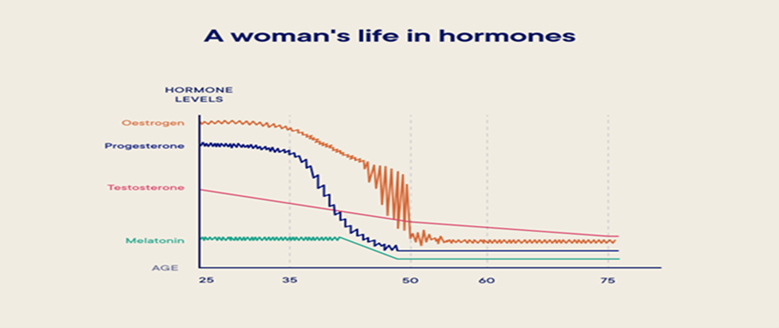Menopause Fact Sheet

Please consult your doctor before making any changes, especially if you have underlying health conditions or are in a risk category, to assess your individual risks and benefits.
Some Benefits of Hormone Therapy
For most healthy women in perimenopause, menopause, and post-menopause—without health risks—the benefits of hormone therapy for managing menopause symptoms outweigh the risks.
- Hormone therapy effectively treats hot flashes and night sweats. For women experiencing disruptions in daily life due to menopause symptoms, it can enhance sleep quality, reduce fatigue, improve mood, and boost overall quality of life.
- Hormone therapy can reduce the risk of broken bones and osteoporosis.
- Hormone therapy can help manage genitourinary syndrome of menopause, including recurrent UTIs, painful intercourse, and vaginal dryness.
Here Are Some Tips to Help You Prepare for an appointment with your doctor.
- Record your family history of diseases and illnesses. This information can help determine if you are a suitable candidate for certain hormone therapies.
- Keep a symptom journal, tracking any changes in your health since your last visit, such as new aches and pains, increased fatigue, hair loss, weight changes, constipation, forgetfulness, depression, and more.
- Consider your preferences for managing your symptoms and long-term health, such as hormone therapy (HT), herbal remedies, or lifestyle changes. It is your decision, so be sure to ask your doctor for their advice based on your medical history.
What types of hormone therapy are available to me?
Hormone therapy is not a one-size-fits-all solution. There are various options available, allowing doctors to tailor the type and dosage to a woman's individual needs and overall health. What works for one woman may not be suitable for another.
Hormone therapy generally comes in two main forms: estrogen and progestogens, both are naturally produced by the female body, but their levels decrease as a woman approaches and enters menopause. This decline can lead to symptoms such as hot flashes, vaginal dryness, and an increased risk of bone fractures. The purpose of hormone therapy is to replace what the body is no longer producing naturally.
Combination Therapy
Women with a uterus require a combination of estrogen and progestogens. After menopause, when the endometrial lining no longer shed during menstruation, taking estrogen alone can lead to an overgrowth of the uterine lining. Progestogens help protect the lining and reduce the risk of uterine cancer.
Other Therapies
The latest guidelines from The Menopause Society emphasize estrogen and progesterone replacement. However, it is important to note that other hormone therapies are available. Testosterone therapy, for example, is gaining interest among women. Consult with your doctor to discuss the risks and benefits of all available options to determine what is best for you.
Administering Hormone Therapy
Estrogen therapy and combination therapy can be administered through various methods. Discuss with your doctor which option is best suited for you.
- Oral medication
- Patches
- Sprays
- Gels or creams
- Vaginal creams
"If you're experiencing menopause symptoms, particularly if they're impacting your daily life, it may be time to seek support."